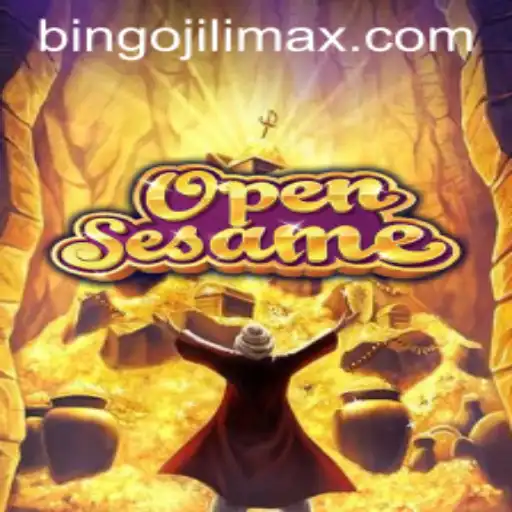
bingojili - Jueteng: The Social and Cultural Dynamics of a Native Betting Game
Explore the intricate web of social, cultural, and economic factors surrounding the traditional Philippine numbers game 'Jueteng' and the modern implications with online platforms like 'bingojili'.

Understanding Jueteng: A Cultural Phenomenon
Jueteng is a popular yet illicit numbers game that has embedded itself into the social and cultural fabric of the Philippines. Despite its illegal status, the game boasts an extensive following, crossing economic and social boundaries. The game has retained its popularity thanks to its simplicity and the allure of substantial financial gains, which makes it appealing to a wide demographic, from urban residents to rural folk.
The Mechanics of Jueteng
The rules of Jueteng are straightforward. Participants choose a pair of numbers from 1 to 37 and place their bets. A winning combination results in significant payouts, alluring those looking for a quick windfall. This simplicity in gameplay is a critical factor in Jueteng's widespread appeal. Every day, draws are held using either a tambiolo, a small hand-cranked raffle drum, or more modern digital methods operating from clandestine locations.
Historical Roots and Evolution
The history of Jueteng dates back to the Spanish colonial era, when it was first introduced. Initially, it served as a past-time for elite Spaniards but quickly permeated all social classes. Over time, variations of the game emerged, cementing it into the culture of various Philippine provinces. With technological advancements, Jueteng transformed, finding new life through online platforms like 'bingojili', which aim to replicate the thrill of traditional gameplay on digital screens.
The Role of Bingojili in Modern Jueteng
As technology advances, so do the methods of playing Jueteng. Online platforms such as 'bingojili' have emerged, offering a modern twist on the traditional game. These platforms bring a global audience, allowing users to engage in similar betting activities from anywhere in the world. The convenience and anonymity offered by online platforms have attracted a new generation of players, who might otherwise adopt different forms of entertainment.
The Socio-Economic Impact
Jueteng plays a notable role in the socio-economic landscape of the Philippines. It forms an informal economy that creates livelihoods for thousands who act as kubradors (collectors), coordinators, and bet-takers. Although considered outside the legal framework, earnings from Jueteng support families and provide funding for community projects like fiestas or even tuition fees.
Challenges and Countermeasures
The persistent popularity of Jueteng poses significant challenges for Philippine law enforcement and governance. Efforts to eradicate it have often been met with limited success. Corruption within law enforcement and the participation of local officials have been cited as key factors in its persistence. While raids and arrests are conducted periodically, the game’s de-centralized and adaptable nature makes regulation difficult.
Cultural Significance
Jueteng is more than a simple numbers game; it represents a cultural ritual intertwined with Filipino life. For many, it's more than economics—it's about community, hope, and tradition. It thrives on the interpersonal relationships between the bettors and the coordinators, and often forms a social glue that binds neighborhoods together. Festivals, social gatherings, and even everyday community interaction often revolve around the latest number draws and winning rumors.
A Symbol of Hope and Aspiration
For the average bettor, the appeal of Jueteng often stems from the dream of financial liberation. In a country where economic disparity and poverty are rampant, Jueteng offers a tantalizing hope for better fortunes. The game itself acts as a narrative of aspiration for many Filipinos, embodying the hope for a transformative, albeit unlikely, cash windfall that could improve their circumstances.
Navigating Legal and Ethical Concerns
The question remains of whether Jueteng can or should be legitimized. There are arguments in favor of legalizing the game to harness the revenue it generates, to ensure that it can be regulated effectively, and to minimize corruption. However, ethical concerns arise regarding its impact on gambling addiction and the social implications of institutionalizing betting as a means of economic support.
The Future of Jueteng
The trajectory of Jueteng depends heavily on policy decisions, technological integration, and evolving cultural attitudes. While platforms like bingojili exemplify the game's adaptation to modern times, the underlying issues of gambling addiction, legal ambiguity, and socio-economic dependence persist. Regardless of its legal status, Jueteng remains an indelible part of Filipino culture and an enduring testament to the complex interplay between tradition and modernity.
As the digital age continues to evolve, it will be interesting to observe how Jueteng adapts and survives amid increasing scrutiny and global pressure to curb illegal gambling activities. Whether it turns into a regulated form of entertainment or remains on the fringes of legality, its resilience speaks volumes of its enduring impact on society.


GOLD VIP
Minimum deposit: ₱1,500
- ✅ 150% bonus on all deposits
- ✅ Priority withdrawal in 1 minute
- ✅ 10% cashback weekly
- ✅ VIP support 24/7
- ✅ Higher betting limits
PLATINUM VIP
Minimum deposit: ₱6,000
- ✅ 200% bonus + all Gold benefits
- ✅ Instant withdrawal 24/7
- ✅ 15% cashback weekly
- ✅ Exclusive VIP table in casino
- ✅ Special event invitations
DIAMOND VIP
Minimum deposit: ₱30,000
- ✅ 300% bonus + all previous benefits
- ✅ Dedicated personal manager
- ✅ 20% cashback weekly
- ✅ Unlimited withdrawal limits
- ✅ Exclusive trips and gifts
🚀 Register NOW and Get ₱15,000 Bonus!
⏰ LIMITED TIME OFFER! Join over 1.2 million players who have already discovered why bingojili is the #1 betting platform in the Philippines. Registration in 30 seconds, first withdrawal in 2 minutes!
💬 What our players say
"Best platform I've ever used! GCash withdrawal in 2 minutes, amazing support!"
- Carlos M., Manila ⭐⭐⭐⭐⭐
"Won ₱45,000 on Gates of Olympus! They paid everything correctly via GCash."
- Ana L., Cebu ⭐⭐⭐⭐⭐
"VIP system is amazing! I have a personal manager and cashback every week."
- Roberto S., Davao ⭐⭐⭐⭐⭐
PAGCOR License
SSL 256-bit
eCOGRA
BSP Approved





